
This new video from @climateadam.bsky.social is even more brilliant than usual - insightful and hilarious 🧐🤣❤️
www.youtube.com/watch?v=py0X...
@nickzimson.bsky.social
Co-Director at Climate Risk Lab & Chief Research Officer at ACDI (UCT). Climate change and Heritage; Education; Sport; Response Risk; IPCC AR7 Special Report on Cities & WGII

This new video from @climateadam.bsky.social is even more brilliant than usual - insightful and hilarious 🧐🤣❤️
www.youtube.com/watch?v=py0X...

Colored horizontal bar graphs show what races would have the best running conditions.
🎽Most marathons (86% of the 221 global races analyzed) are expected to decline in odds of optimal running for either recreational or elite runners by 2045.
Check out the impacts on specific races using our interactive tool! 2/2
app.climatecentral.org/dataviz/mara...
National Climate Change Risk Assessment out now 👇🏽
Risk to current ecosystems VERY HIGH. Rick by 2050 VERY HIGH to SEVERE

Case studies: 🇪🇹 🇰🇪 🇯🇲 🇧🇩 🇰🇿
Link to full paper: odi.org/en/publicati...
with the brilliant colleagues at @odi.global @acdi.bsky.social - @jodiekeane.bsky.social, Nat Mason and Mark Miller
#ClimateRisk #Development #GreenTransition #GlobalSouth #ClimateJustice
Key ideas:
🌍 Climate impacts are already disrupting productive sectors
📉 Responses to climate change can “squeeze” vulnerable economies
📈 But a “green ease” is possible — with joined-up policy, fair finance, and inclusive trade
🧵 New paper out 📄
“Securing Structural Economic Transformation in a Climate-Changed World”
We explore how climate change is reshaping development pathways — not just through physical impacts, but also through the global response: trade rules, finance, and geopolitics.
How to apply:
Submit a single PDF with your application letter, CV, academic transcripts, a writing sample, and the email addresses of two references.
The application deadline is September 30, 2025.
#ClimateChange #Postdoc #Research #AI #UniversityOfCapeTown #ClimateAdaptation #AcademicJobs
We offer:
- A competitive tax-free fellowship of ZAR 450,000–600,000 per year for two years, with the possibility of extension.
- A vibrant research environment at a leading university in Africa.
- Opportunities for global collaboration and leadership in climate adaptation science.
We're looking for someone with:
- Experience in systematic reviews, meta-analysis, or evidence synthesis.
- A demonstrated ability to produce peer-reviewed research articles.
- Familiarity with AI/ML applications in research or environmental data analysis.
What you'll do:
- Lead global knowledge synthesis on climate change adaptation and risk.
- Use AI and machine learning to improve evidence synthesis.
- Lead high-impact publications and contribute to policy-relevant outputs.




Delighted to announce that we are recruiting multiple Postdoctoral Research Fellows to lead cutting-edge work at the intersection of climate change adaptation, AI, and global evidence synthesis.
@ascend-uct.bsky.social @acdi.bsky.social

🚨 Open Call for new Steering Committee Members 🚨
Are you working on #risks from #extremeEvents under #environmentalChange?
Join us as Risk KAN Steering Committee member for the upcoming term: www.risk-kan.org/about-riskka...
www.risk-kan.org
@futureearth.bsky.social @wcrpclimate.bsky.social.
And here is a podcast version: www.podbean.com/ew/pb-9pqm9-...
open.spotify.com/show/3u8zCUo...

Read the full paper:
📄 Simpson et al. (2025) “Advances in complex climate change risk assessment for adaptation”
🔗 doi.org/10.1038/s441...
Let’s build adaptation that’s systemic, equitable, and feasible. [9/9]
What’s new?
We extend DAPP to DAPP-MR for multi-risk systems.
We link systemic risk modeling with adaptation feasibility.
We emphasize co-production, local knowledge, and fiscal realism. [8/9]
Equity & feasibility:
We outline 5 enablers for governing complex risks:
Equity in planning
Avoiding maladaptation
Actionable knowledge
Multi-disciplinary integration
Local feasibility assessment [7/9]
Finance & insurance:
Climate risks are reshaping sovereign debt, insurance markets, and fiscal resilience.
We propose fiscal stress testing and risk-layering to guide adaptation finance.
Case: Danube region multi-risk fiscal gap analysis. [6/9]
Coastal zones:
With billions at risk from sea-level rise, we need tools that prioritize infrastructure and visualize cascading failures.
Case: Sweden’s hydrometeorological resilience tool for regional planning. [5/9]
Cities:
Urban areas face interlinked risks.
We show how pathways planning and decision-making under deep uncertainty (DMDU) can guide flexible, equitable urban adaptation.
Case: New Zealand’s NCCRA & National Adaptation Plan. [4/9]
Key methods we explore:
🔹 Participatory modeling
🔹 Adaptation pathways (DAPP & DAPP-MR)
🔹 Systemic fiscal disaster risk modeling
🔹 Infrastructure interdependency mapping
These help navigate uncertainty and complexity. [3/9]
Why this matters:
Climate risks are increasingly compound, cascading, and systemic—crossing sectors, scales, and borders.
Traditional assessments fall short. We highlight methods that make risk governance more actionable. [2/9]
🧵 Advances in Complex Climate Risk Assessment for Adaptation
New comment in npj Climate Action with colleagues across IIASA, SEI, VU Amsterdam, UNU, and NZ.
We explore how cities, coasts, and finance can better govern cascading climate risks. [1/9]
@riskkan.bsky.social @acdi.bsky.social
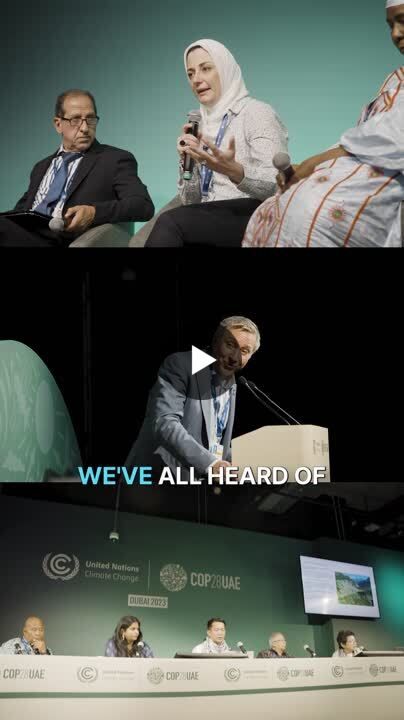
Heritage Adapatation Indicators and the Global Goal on Adaptation.
Submision to UNFCCC
www.linkedin.com/posts/preser...
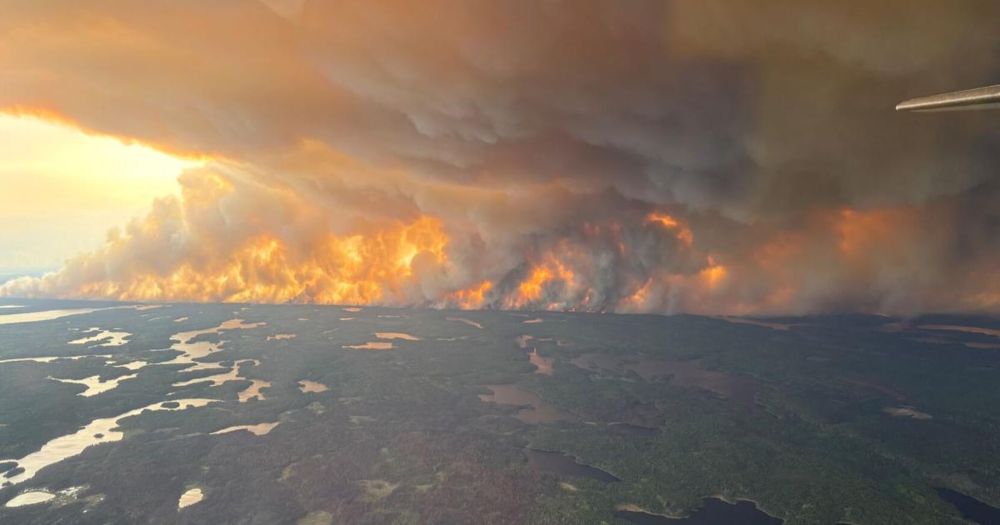
“If we understand industrial CO2 as debt, then heat is the interest on that debt…we now find ourselves in the default zone.”
And here come the repo-men…
Another banger from @johnvaillant.bsky.social
www.thestar.com/opinion/cont...
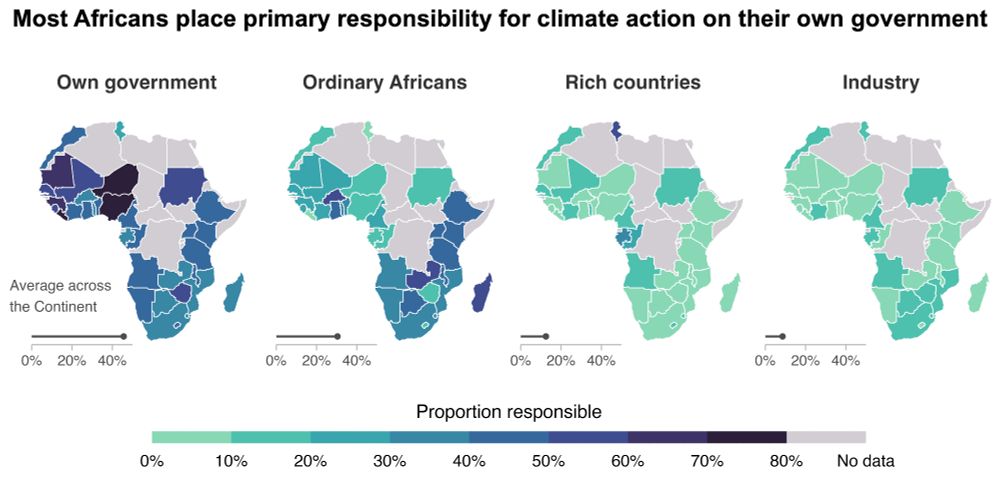
Comparison of proportion of respondents in each country who have heard of climate change and believe the actor most responsible for limiting climate change is their own government, ordinary Africans, rich countries, or industry.
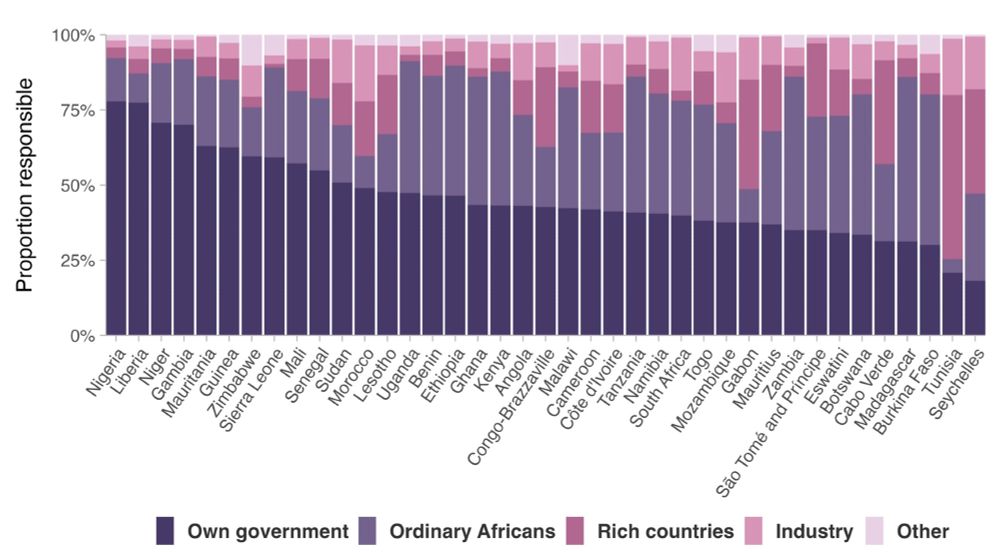
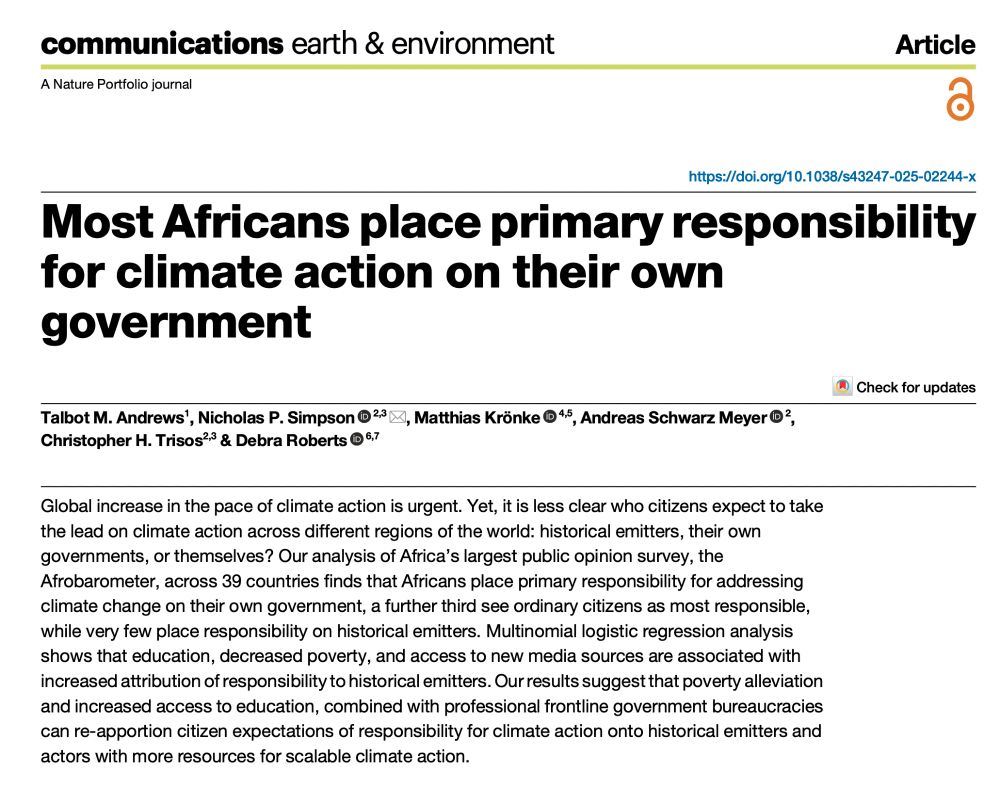
Most Africans place primary responsibility for climate action on their own government.
Our new paper in @natureportfolio.nature.com shows a further third see ordinary citizens as most responsible, while very few place responsibility on historical emitters that caused the climate crisis.
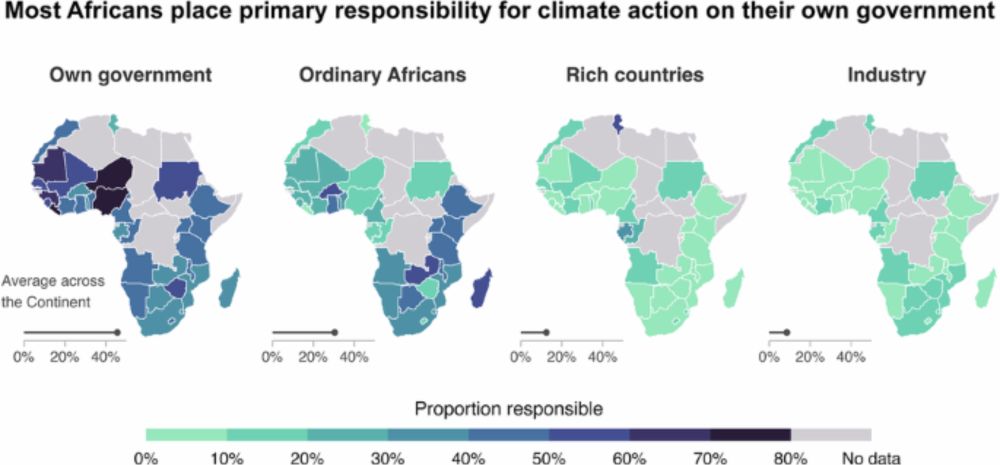
Open Access here: doi.org/10.1038/s432...
@acdi.bsky.social @talbotmandrews.bsky.social @afrobarometer.bsky.social
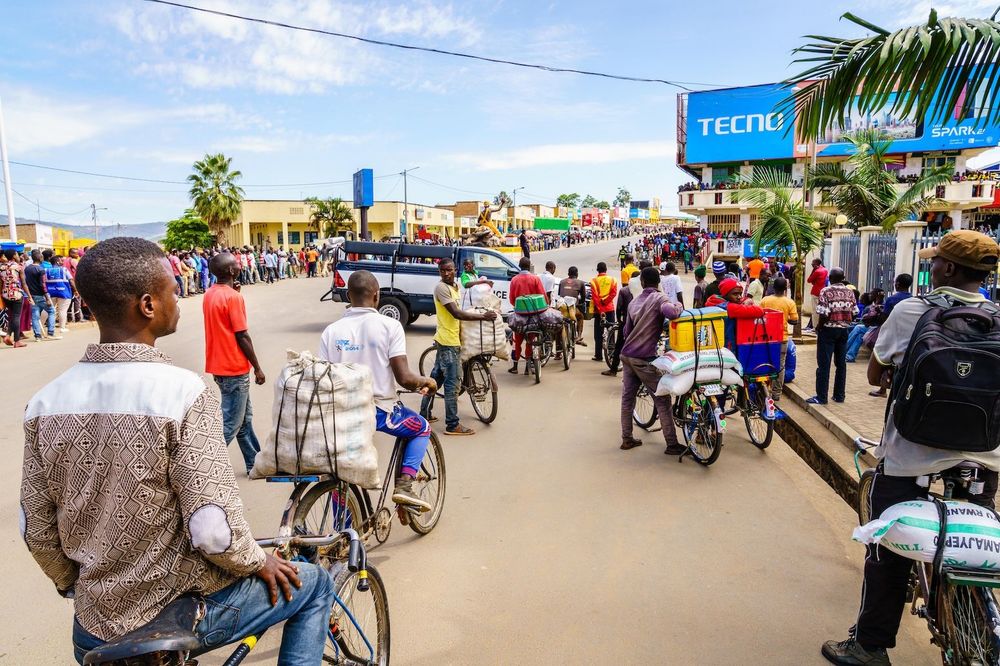
People gather to watch a cycling race in Muhanga, Rwanda. Credit: Alexey Stiop / Alamy Stock Photo
NEW – Survey: ‘Very few’ Africans place responsibility for climate action on ‘rich nations’ | @ayeshatandon.carbonbrief.org w/ comment from @nickzimson.bsky.social Dr Stella Nyambura Mbau, Dr Shehnaaz Moosa
Read here: buff.ly/CEnPXIB
I'm so thrilled to share our newest work on African climate attitudes, identifying who people believe is most responsible for addressing climate change (and what makes people more likely to place responsibility on historic emitters).
05.04.2025 17:40 — 👍 3 🔁 1 💬 0 📌 0
Open Access here: doi.org/10.1038/s432...
@acdi.bsky.social @talbotmandrews.bsky.social @afrobarometer.bsky.social
poverty alleviation and increased access to education, combined with professional frontline government bureaucracies can re-apportion citizen expectations of responsibility for climate action onto historical emitters and actors with more resources for scalable climate action
05.04.2025 06:16 — 👍 0 🔁 0 💬 1 📌 0